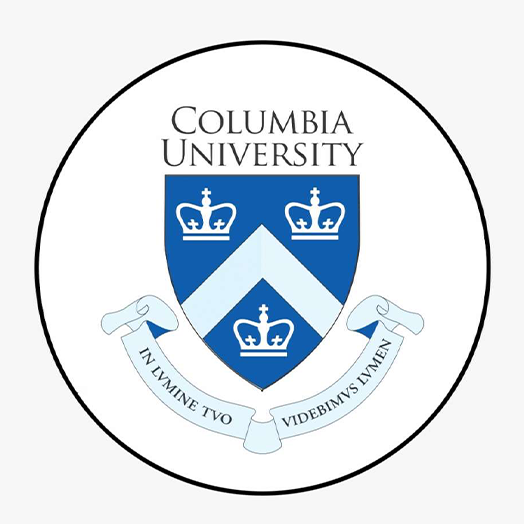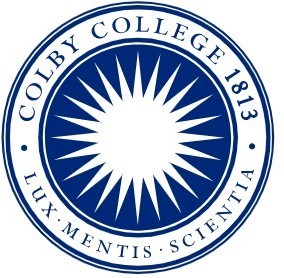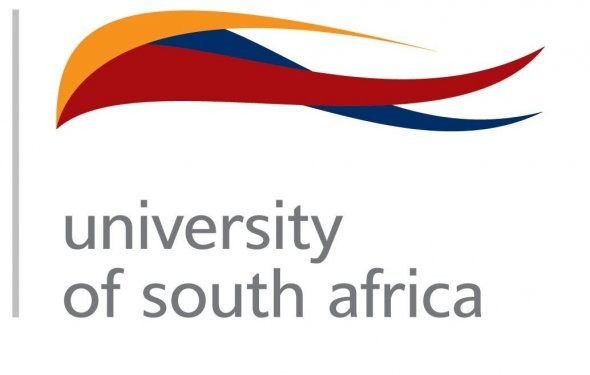COVID-19 has created societal challenges for communities around the world. More than ever before, collaboration and knowledge-sharing have become key to accelerating the research response to the pandemic’s widespread impacts.
The COVID Information Commons (CIC) invites students from higher education institutions around the world to leverage the resources available from the CIC to synthesize a paper for the 2023 CIC Student Paper Challenge and to join the scientific research community addressing the COVID-19 pandemic. Papers should consider research, trends, or topics that could contribute to COVID recovery, health and scientific insights, future discoveries, and innovations.
The 2023 CIC Student Paper Challenge is open to undergraduate and graduate students at public and private universities, colleges, and community colleges. Recent graduates (within the last 12 months) are also welcome to participate!
We also invite STEM and healthcare researchers, professors, or professionals to participate in this challenge as Mentors and Judges.
Exciting Update!
The COVID Information Commons (CIC) is excited to share information about new prizes for the 2023 CIC Student Paper Challenge! For the top 3 winning individuals or teams of the undergraduate/community college student cohort and the graduate student cohort, the CIC will offer the following prizes:
First Place: $400 USD prize
Second Place: $300 USD prize
Third Place: $200 USD prize
Please note that these prizes will be shared with your teammates if you submit with a team of 2 or more people.
Call for Participation
Submissions
Key Dates
Students and Mentors & Judges Call for Participation Opens: March 31st, 2023
For Students:
Fill out the Student Call for Participation form to receive updates about the Challenge, including times for mentoring sessions.
Upcoming Virtual Student Mentoring Sessions, scheduled for:
- Tuesday, April 25th, 2023 at 10 am ET
- Additional sessions to be announced
Student Paper Challenge Submissions due: Monday, July 31st, 2023 at 11:59 pm ET
Extended deadline is Monday, August 14th, 2023 at 11:59 pm ET
Student Paper Challenge Winners Announced: Fall 2023
For Mentors and Judges:
Fill out the Mentors & Judges Call for Participation form to volunteer your expertise for the Challenge.
Papers evaluated: August 2023
The COVID Information Commons (CIC) is an open website that facilitates knowledge-sharing and collaboration across COVID-19 research efforts—in particular, this database includes thousands of NSF- and NIH-funded COVID-related research awards granted in the United States. Along with a curated collection of global scientific resources and datasets, the CIC website houses several advanced search tools that enable users to explore COVID research projects. Use these tools to learn about the frontiers of COVID-19 research while identifying collaboration opportunities and new topics for investigation.
To participate in the 2023 CIC Student Paper Challenge, students may leverage the various resources available from the COVID Information Commons (CIC), along with additional credible resources. Learn more about properly obtaining, evaluating, and citing data here.
Students should then synthesize their findings and unique insights in a 4- to 5-paged, double-spaced paper. This paper should consider a specific trend or topic that could contribute to COVID recovery, health and scientific insights, future discoveries, and innovations.
All undergraduate and graduate students at public and private universities, colleges, and community colleges are invited to participate in this challenge. Recent graduates (within the last 12 months) are also welcome to participate. Students at higher education institutions from around the world are encouraged to participate in the CIC Student Paper Challenge.
Here are some resources to help students develop their research papers:
- CIC COVID Awards and Principal Investigator (PI) Database: A searchable database of over 9,000 COVID-related awards from the National Science Foundation (NSF) and National Institutes of Health (NIH), and profiles of the PI who is the principal researcher on each project.
- CIC Research Explorer: Machine learning-generated visualizations of COVID-19 research, including 9,000+ NSF & NIH Awards
- Interviews with COVID-19 Researchers
- 24+ Previous CIC Webinars
- 150+ Global research resources: Datasets, groups and guides, and news and publications
- 118+ Webinar Recordings of past CIC Researcher Lightning Talks, and English and Spanish Transcripts, including browsable playlists of talks by theme.
- Office hours with mentors: Submit the Student Call for Participation form to receive updated information about dates and registration
Please cite all resources used for your Challenge paper.
We encourage students to write about any topic related to COVID-19 research of interest to them. For example, a paper could propose potential cross-disciplinary opportunities, evaluate a research question based on the experiences of students during the pandemic, or investigate regional and international differences in pandemic research. Students may also analyze the coronavirus from a longitudinal perspective, incorporating information about past pandemics into discussions of the current pandemic and its severity or social impact.
Students also may leverage potential Theme Challenges, or research prompts, as listed below. The Theme Challenges align with one or more of the various research topics presented as video playlists on the CIC’s COVID-19 Research Lightning Talks page.
These research challenges and presentations consider data sharing, privacy, and security concerns.
These research challenges and presentations analyze the role of COVID on new developments and changes in student education.
These research challenges and presentations focus on COVID’s impact on the environment, including infection transmission in urban neighborhoods, wastewater-based monitoring, and hazard mitigation.
These research challenges and presentations describe the effect of COVID on the supply and demand chain, including resource shortages, PPE, and other critical equipment.
These research challenges and presentations deal with the structure of the virus, vaccine development, diagnosing and testing.
These research challenges and presentations consider the relationship between IT, technology, AI, and statistics applied to healthcare.
These research challenges and presentations consider mental health, social media, remote work and education, human mobility, perceptions, attitudes, social distancing, and interpersonal interactions.
Papers will be evaluated by a committee of researchers and other experts on the basis of their intellectual merit and broader impact, two criteria used by the NSF to evaluate project proposals. NSF describes intellectual merit as the potential of the proposed activity to advance knowledge, while broader impact is described as the potential of the proposed activity to benefit society and contribute to the achievement of specific, desired societal outcomes.
Papers should demonstrate a thorough understanding of the objectives, methods, and implications of COVID-19 research and make insights and recommendations that contribute to greater societal goals.
Papers will also be evaluated to ensure that they abide by the submission requirements (4-5 pages, 12 pt. Times New Roman font, double spaced). If your paper does not follow these submission requirements, you risk disqualification from the 2023 CIC Student Paper Challenge.
The submissions will be judged in two cohorts: the Undergraduate/Community College Cohort and the Graduate School Cohort.
The top papers chosen may be published on the CIC website and shared throughout the global CIC community. Authors may also have the opportunity to present their papers at a future CIC event convening researchers and leaders from academia, government, industry, and non-profit organizations.
Additionally, for the top 3 winning individuals or teams of the undergraduate/community college student cohort and the graduate student cohort, the CIC will offer the following prizes:
First Place: $400 USD prize
Second Place: $300 USD prize
Third Place: $200 USD prize
Please note that these prizes will be shared with your teammates if you submit with a team of 2 or more people.
Can students outside of the United States participate?
- Yes; undergraduate and graduate students from all countries are invited to participate. We encourage recently graduated students (within the past 12 months) from undergraduate/community college programs and graduate programs from around the world to participate, as well.
Is approval from a faculty advisor required for this challenge?
- No; however, you are welcome to consult with professors or researchers while writing your paper. Please include an acknowledgement paragraph at the end of the paper if you receive recommendations or advice from any particular researchers or experts while developing your paper. Please note that your paper may not be authored or co-authored by anyone outside of your team, including mentors, professors, faculty, or professionals, or else you risk disqualification.
Can students work on one paper as a team?
- Yes; teams should send one submission form with the names of the primary author and co-author(s).
Can students use resources outside of the resources hosted by the CIC?
- Yes; students may include any pertinent resources outside of the CIC resources as long as they are properly cited in the paper submission.
Can students use Artificial Intelligence Chatbots, such as ChatGPT, to assist in writing their papers?
- No; students may not use text generation platforms to write any part of their submitted papers. Submitted papers should only include original, student-written content.
How should the paper be formatted?
- The paper should be no longer than 5 pages, including graphics and excluding any notes, references, or appendices, and double-spaced throughout; in 12 pt., Times New Roman font.
What if I have additional information I would like to provide for review or reference?
- If you have additional content that you would like to provide for reference, please include it in an appendix. The appendix will not be judged for the Challenge. It is simply an area to provide information outside of your 4-5 page paper.
How should citations be formatted?
- You are welcome to use any citation style provided that your references are accurate and complete. We recommend Vancouver, Chicago, or APA.
Do the paper and sources have to be written in English?
- Yes, all papers must be submitted in English. English-translated sources can be used if properly cited.
Can the paper include graphics?
- Yes; all graphics should be explained and cited. However, papers may only be 4-5 pages in length. If your graphics extend your paper past this limit, you may include them in an appendix section.
Can I submit a paper I have already written?
- Yes; however, the paper must follow the submission requirements of the Challenge and consider a specific trend or topic that could contribute to COVID recovery, health and scientific insights, future discoveries, and innovation.
Please contact [email protected] for any other questions.
Previous CIC Student Paper Challenge Winners
The inaugural CIC Undergraduate Student Paper Challenge was launched in December 2020 to bring students into the CIC community and encourage their professional development and training for their research careers.
In 2022, the CIC hosted its second annual Student Paper Challenge, broadening its reach to undergraduate, graduate, and recently-graduated students. With students participating from around the globe, the winning submissions represented higher education institutions from across the U.S. and South Africa.
The student winners were offered the opportunity to present their research in a virtual setting to the Northeast Big Data Innovation Hub and COVID Information Commons communities. The feedback was overwhelmingly positive: one of the student presenters was offered research funding by one of the PIs attending the webinar, and a potential internship in 2022 at another university.
Learn more about the 2021 Undergraduate CIC Student Paper Challenge Winners:
Learn more about the 2022 Graduate CIC Student Paper Challenge Winners:
Learn more about the 2022 Undergraduate CIC Student Paper Challenge Winners:
Learn more about the 2023 Graduate CIC Student Paper Challenge Winners:

"Projecting the disease burden of type 2 diabetes in mainland China after removing zero-COVID policy: a data-driven modelling study"

"Country Clustering Analysis of COVID-19 Pandemic Dynamics: Insights and Implications for Future Preparedness"
Learn more about the 2023 Undergraduate CIC Student Paper Challenge Winners:

"Understanding the community pattern and rhetoric strategies of anti-vaxxers through Twitter analysis"

"A Stacking Ensemble Approach Leveraging Plasma Proteomics, Metabolomics, and Clinical Data for COVID-19 Severity Prediction"

"Sufficient COVID-19 quarantine and testing on international travelers from China"
2021 CIC Student Paper Challenge Winner Testimonial:
“I want to thank you for giving me the opportunity to participate and share my research with the CIC. The process was very systematic, inspirational, and tremendously motivational. The connections and exposure for intellectual discussions have been ubiquitous, opening up further research collaborations for Fall 2021 and a potential internship in the summer of 2022. I could not have imagined all of this happening in such a short time and owe it to the CIC’s openness and consideration to allow a high school student like me to participate. I would love to continue being involved with any other opportunities at the Northeast Big Data Hub”.
Join the CIC Community
Email us at [email protected] with any inquiries or questions.
Some ways to stay connected with the CIC community:
- Join our Slack channel
- Follow us on Twitter, Instagram, or LinkedIn
- Subscribe to the Northeast Hub YouTube channel
- Sign up for our CIC mailing list
- Attend an upcoming CIC Event






